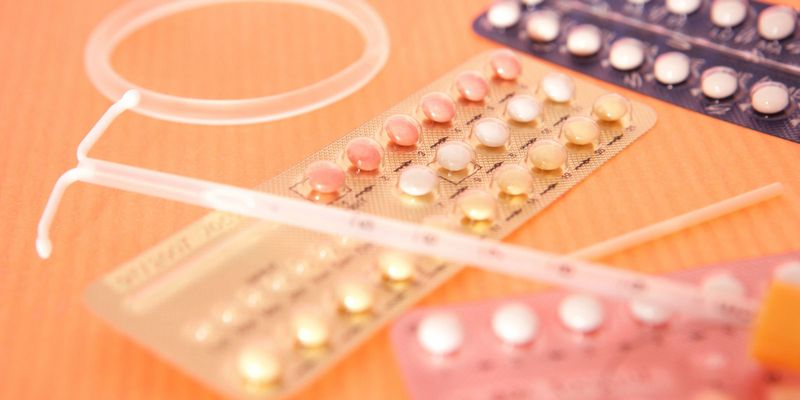12 Most Widely Spread Myths about Contraception
Since 2007, September 26 is International Contraception Day. The essence of this day – to remind men and women that every pregnancy should be desired and that it is important to remember the techniques and methods of proper contraception.
Despite the fact that today there appear more and more birth control methods for women, they become less harmful for health and more sparing, the number of unplanned pregnancies remains at a fairly high level – the cause is widespread mistakes and sometimes careless attitude to family planning.
Therefore, Trust Pharmacy team decided to reveal the most absurd, dangerous, and common myths about contraception.
1. First Sexual Experience doesn’t Require Contraception
After the first menstruation, a young girl is able to conceive and therefore can easily become pregnant. For the first sexual intercourse, the most suitable contraception method is a condom, the main rule – to use it correctly.
2. Oral contraceptives do not provide 100% protection against pregnancy
This is a myth with the remark that pills’ effectiveness is 99.7%. Birth control pills prevent ovulation ( egg release from ovum follicle) and therefore make fertilization impossible.
This contraception type effectiveness depends on the correct application, and pills «inefficiency» is only happening because of forgetfulness. Regularly almost 71% of women forget to take pills in time, and during holidays – this number increases by 80%.
3. Condoms Protect against all Sexually Transmitted Diseases
This is not true, because condoms do not cover the entire surface exposed to infection risk. For instance, they are useless against skin diseases (scabies, crab lice).
4. Nursing Women can’t Get Pregnant
It is this widespread myth, which causes 10% of abortion during the first year after labor. On the one hand, nursing women’s fertility is reduced as during the lactation period there produced hormones suppressing reproductive function.
But in order to get these hormones produced in large quantities, you need to breastfeed as often as possible, at least 1 time in 3-4 hours. However, without analyses it is difficult to estimate how many hormones are produced, besides, eventually, children need less and less milk and menstrual cycle is gradually recovering.
5. Hormonal Female Birth Control Contributes to Weight Gain
Nowadays this is not true, but at the beginning of hormonal contraception invention, these concerns were indeed justified. The first contraceptive disturbed metabolism, provoked thrombosis and cardiovascular diseases.
In any case, before using hormonal contraception you need to consult a doctor and undergo a series of tests. Besides, you must strictly follow oral contraceptive pills intake regimen and use pills as long as there is a need for contraception.
6. It is Impossible to Become Pregnant during Menstrual Period
It is a myth that many young girls believe which leads to unpleasant consequences. The chances to conceive are extremely low during menstruation, but sperm cells may retain their functions for up to 72 hours while being in the uterus endometrium. After the menstruation period, they are moving further and can fertilize an egg, resulting in pregnancy.
7. Contraception «in the Morning» is Not Harmful
Preparations, intended for emergency contraception, that is applied after sexual intercourse, are harmful to your health and in some countries even prohibited. To some extent, such pills are equivalent to abortion, because their frequent and chaotic use may lead to similar consequences. On the other hand, medications for emergency contraception often have the same composition as regular oral contraceptives but contain a larger hormone dosage. They prevent conception, so they must be taken within 72 hours after intercourse.
It is important to remember that this contraception type is emergency one, and its application damages your health because large doses of hormones can cause menstrual disorders and other unpleasant consequences.
8. Calendar Contraception Method is Reliable
The calendar method of protection against unwanted pregnancy difficulty is that women should know exactly her menstrual cycle schedule and have sex only during «safe» periods. But there are no 100% «safe» periods.
9. «Old Wives Remedies» are Also an Option
Non-medical contraception methods are various and they all have contraindications. For example, no hygiene products will prevent unwanted pregnancy, as well as lemon juice, vinegar or soap. Sperm cells can not tolerate acidic environment and are likely to be destroyed, but it is impossible to get to all internal organs, but you are sure to disrupt the acid-alkaline balance. And this fraught with infections development and mild burns.
10. Hormonal Contraception is Very Harmful
This is not quite true. Hormonal agents must be prescribed by a gynecologist, taking into consideration organism-specific characteristics. Advantages of hormones are that sometimes they are applied to treat infertility, they also help to improve lubricous skin, and if contraceptives are taken for more than 10 years, ovarian cancer risk is reduced by 50%, and uterine cancer – by 60%.
The disadvantages of hormonal contraception are that they can actually cause problems. For example, smoking women after 35 years old are not recommended to apply them – hormones-estrogens increase thrombosis risk. Among hormonal coil side effects are inflammation, ectopic pregnancy, menstrual irregularities, sickness, headaches.
11. After Menopause Contraception is not Necessary
Elderly women may as well become pregnant because fertility (ability to conceive) fades slower than menstruation stops, and pregnancy risk persists for two years after menopause.
12. Young Women can not Use Intrauterine Contraception Devices
This is not true. Intrauterine contraception devices include coils, loops, and other devices, inserted in the uterus, preventing pregnancy for 10-12 years. It used to be considered that, they may increase pelvic inflammation risk for girls under 18, but in 2007 American College of Obstetricians and Gynecologists announced these devices absolutely safe for patients of all ages.


